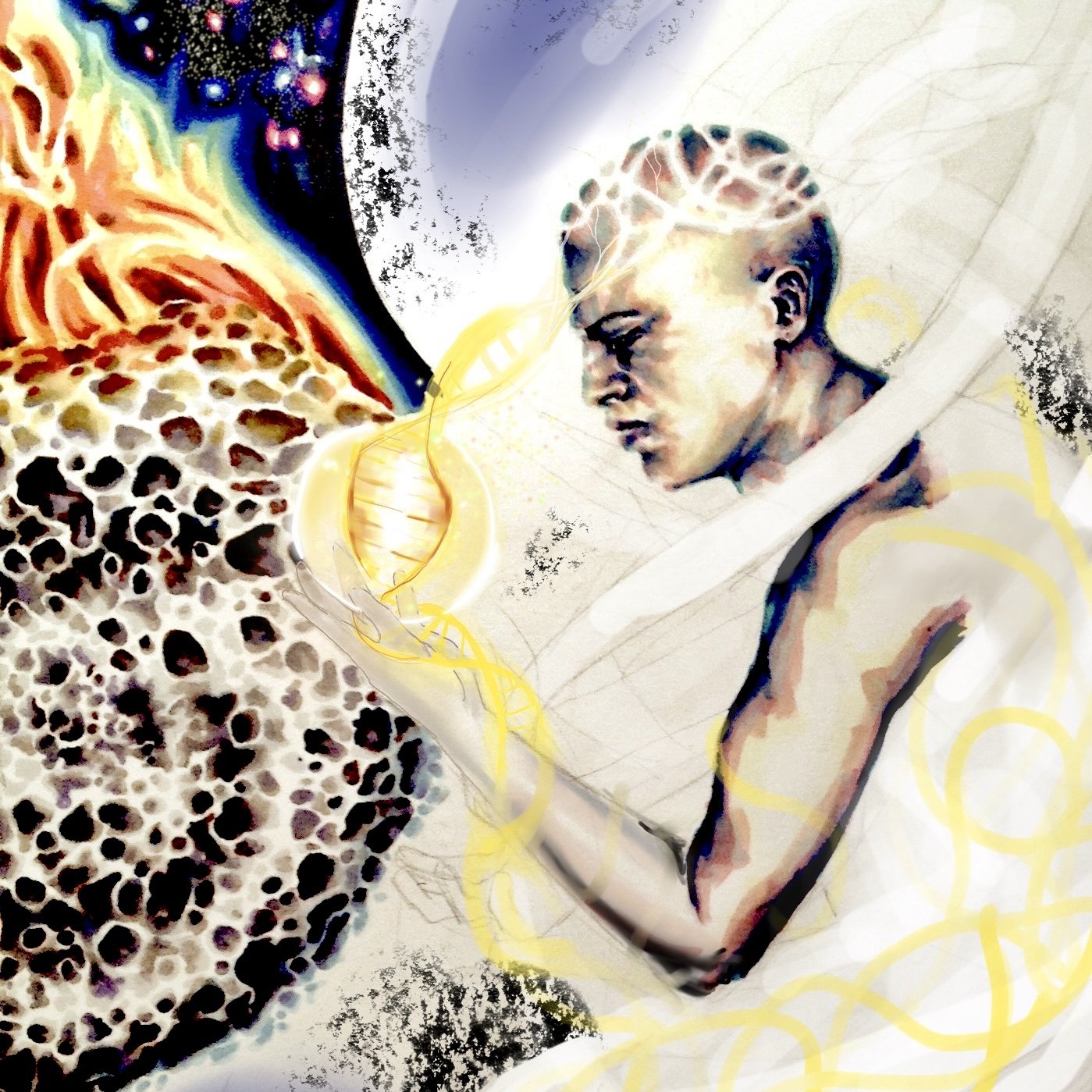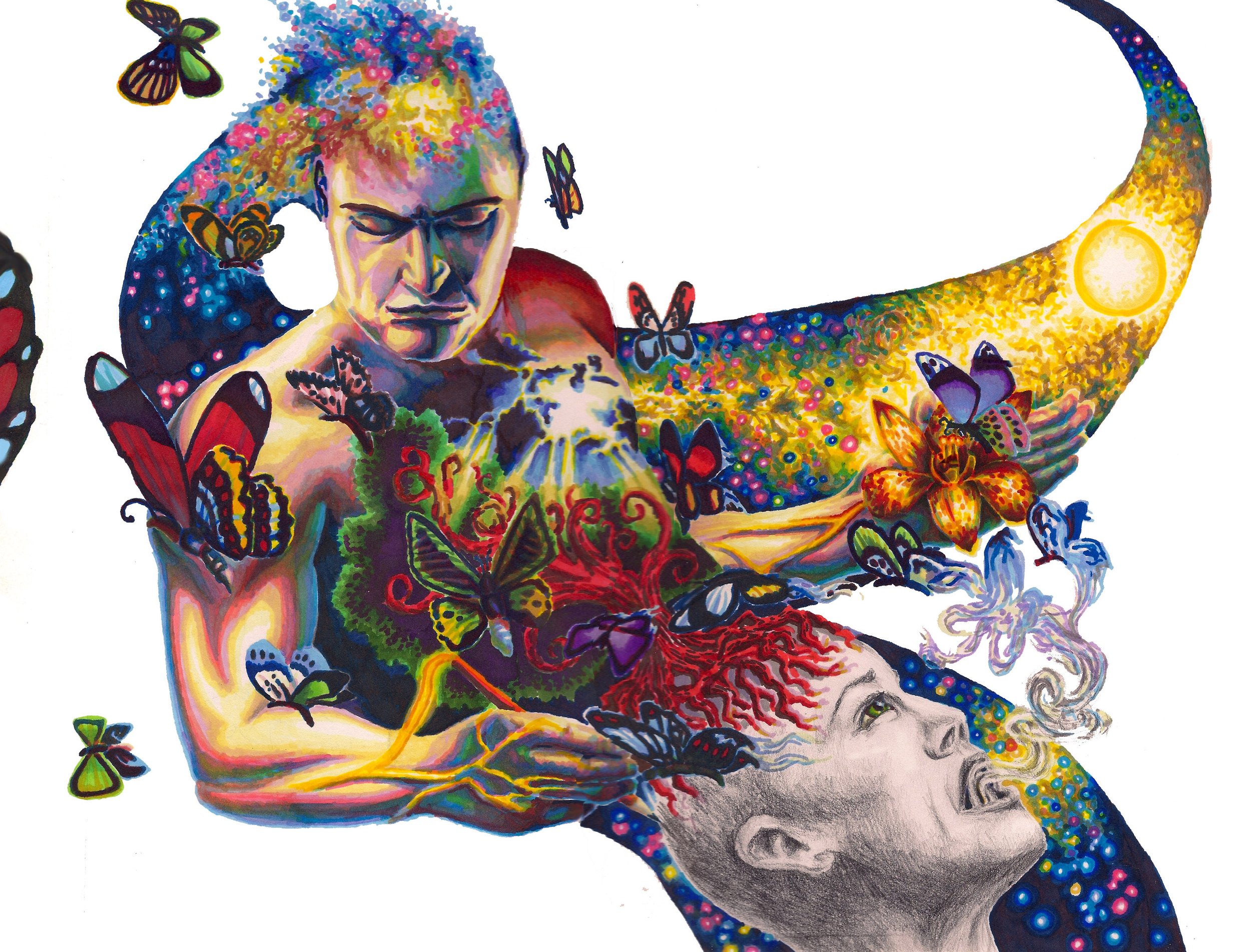
Parasitic Systems: The Exploitation of Empathy and the Path to Collective Resilience
This comprehensive guide examines how exploitation functions in society and offers practical strategies for both individual and collective resistance. The work reveals how manipulative behaviors parasitically depend on the existence of prosocial traits like empathy, accountability, and desire for connection—the very qualities they ultimately damage.
Starting with a critical examination of common justifications for exploitative behavior, the guide dismantles the notion that antisocial tactics offer genuine advantages. Instead, it demonstrates how such behaviors create only short-term, unsustainable gains while undermining the systems that make those gains possible.

Selling Our Authentic Selves: How Everyday Choices Shape Our Character
What if the greatest threat to your integrity isn't temptation but justification?
We misunderstand how moral compromise enters our lives.
It's rarely through grand gestures, but through small moments of self-deception.
Small lies.
Small betrayals.
Small justifications.
Small losses of self.

Five Things Highly Open People Understand That Often Get Misinterpreted
If you score high in openness to experience (one of the major personality traits measured in the Big 5 personality model) you might find yourself frequently misunderstood despite your best intentions to connect with others. Here's why that happens and what others might be missing:

The Truth of Transformation
Some nights, I see lights that threaten the very idea of stars ever existing. A simple porch bulb drowns out the cosmic engines burning billions of miles away. What first seems like a flaw in perception - our inability to see past our immediate artificial glow into the vast cosmic dance - reveals an often overlooked truth about human impact: our limited reach isn't a weakness. It's the source of our greatest power.

The Art of Being: A Creative Path to Inner Peace
In the raw simplicity of birth, we arrive bearing only our consciousness—that ineffable spark that precedes our first breath and persists beyond our last. This fundamental truth serves as both our anchor and our wings, yet in the rush of modern life, we've often lost sight of its profound significance.
We stand at a curious crossroads in history, where material abundance often masks spiritual poverty. We have mistaken the end for the means, missed the forest for the trees, and in our relentless pursuit of "living," we have forgotten what it means to be truly alive. Our consciousness, that singular gift we carry through the threshold of birth and death, often lies neglected like an unopened letter containing life's most vital messages.

How to Succeed at Failing
"I was wrong."
"I made a mistake."
"I really messed up."
These words have initiated some of the hardest conversations of my life. They're the phrases that make your heart race and your throat tighten. Yet, they've also led to some of my most transformative moments.
We've all nodded along to those well-worn phrases: "Nobody's perfect," "Failure is part of success," "Everyone messes up sometimes." But secretly, many of us still hold ourselves to an impossible standard: "Yeah, but I better not make one."

The Absurdity of Exploitative Power
Imagine an octopus whose tentacle becomes convinced it's superior to all the others. This clever tentacle studies the weaknesses of its fellow limbs, then systematically works to disable them - pinching nerves here, restricting blood flow there. With each successful attack, it feels more powerful, more in control. Soon it's the only functioning tentacle left.
Our triumphant tentacle has won! Except... now the octopus can barely move. It can't catch enough food. It can't navigate complex terrain. The "winning" tentacle, in its quest for dominance, has engineered its own demise. The oxygen-rich blood it depended on grows thin as the weakened system struggles. In destroying its "competition," it destroyed the very ecosystem that gave it life.

What Lies Between Love and Loneliness: A Meditation on Human Connection
Love is not a simple word to define; its meaning shifts across cultures, contexts, and relationships. Despite its ambiguity and multifaceted nature, there is arguably no more important concept, or experience, in the human lexicon of life and meaning. I tread carefully but intentionally in establishing common ground for meaningful discourse, proposing that love embodies several essential attributes:

A Guide to Asking Effective Questions: Understanding Valid and Invalid Questioning
Contrary to widely held belief, not all questions are equally valuable when seeking understanding. While there's a common saying that "there's no such thing as a stupid question," this oversimplifies a crucial distinction: some questions serve to advance understanding, while others can impede it.

The Self That Isn’t There
We stop too short. We fail to see that what we defend might not even exist at all.
In recent years, we've grown increasingly sophisticated in recognizing our psychological defense mechanisms. We name them, analyze them, point them out in ourselves and others with growing precision. This awareness is important and worthwhile.
But then we stop there.
“This isn’t really who they are.”
"They're this way because of their trauma."
"They're projecting."
"They're reacting defensively."
Defending against what?